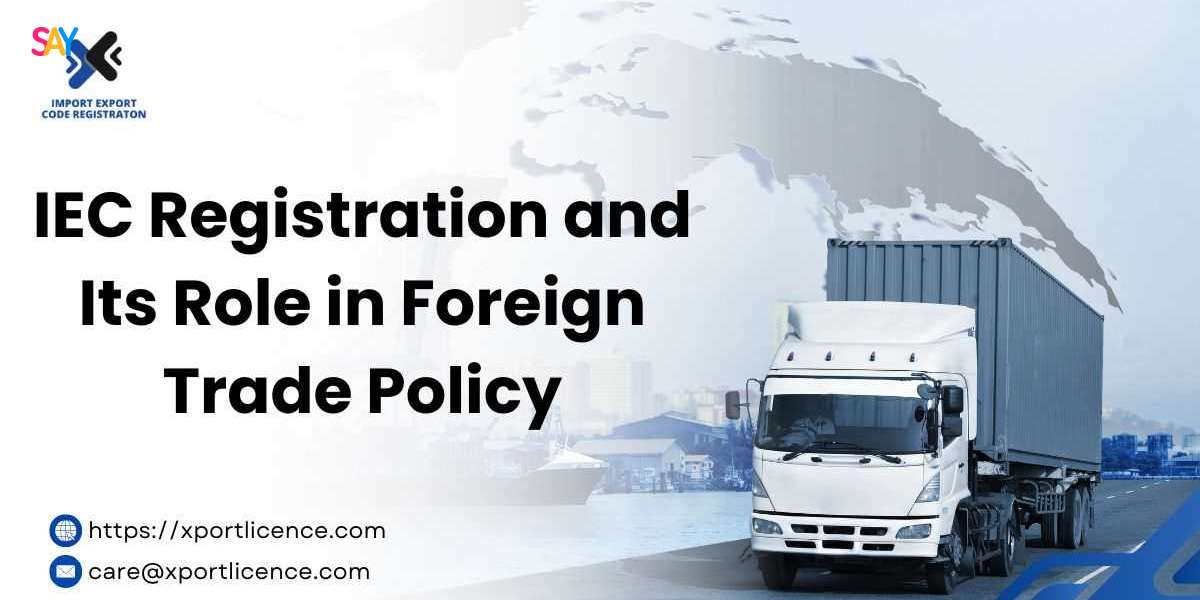India’s foreign trade policy is designed to promote exports, regulate imports, and create a favorable environment for businesses to engage in international trade. One of the fundamental requirements for participating in global trade from India is the Importer Exporter Code (IEC) registration. The IEC is a 10-digit code issued by the Directorate General of Foreign Trade (DGFT), Ministry of Commerce and Industry, Government of India. This code serves as a unique identification number for businesses engaged in import and export activities.
The IEC Registration plays a crucial role in facilitating trade, ensuring compliance with regulations, and availing government incentives. Without this registration, businesses cannot legally engage in cross-border trade. This article explores the significance of IEC registration and its impact on India’s foreign trade policy.
Understanding IEC Registration
IEC registration is a mandatory requirement for any individual or business entity looking to import or export goods and services. It acts as an essential trade license, enabling businesses to establish credibility and streamline their international transactions.
Who Needs IEC Registration?
IEC registration is required by:
- Manufacturers and traders involved in import/export activities
- Exporters of services, including freelancers dealing with foreign clients
- E-commerce businesses selling products internationally
- Organizations that require trade-related financial transactions such as remittances
Certain categories, such as government departments and specific notified entities, may be exempt from IEC requirements under special provisions.
The Role of IEC in Foreign Trade Policy
Foreign trade policy in India is shaped by the objectives of enhancing exports, reducing trade deficits, and ensuring ease of doing business. IEC registration is an integral part of this framework, impacting various aspects of trade policy.
1. Facilitating Global Trade Participation
IEC registration serves as a gateway for Indian businesses to participate in the global market. It allows exporters and importers to establish credibility, negotiate better deals, and build trust with international buyers and suppliers. Without an IEC, businesses face legal restrictions on foreign trade, limiting their growth prospects.
2. Compliance with Government Regulations
The IEC system helps the government regulate international trade by maintaining a database of all importers and exporters. This enables authorities to track trade activities, monitor compliance with laws, and prevent malpractices such as money laundering, illegal transactions, and unauthorized trade activities.
3. Enabling Access to Export Incentives
India’s foreign trade policy offers several incentives to exporters to boost trade competitiveness. Some of the key benefits available to IEC-registered businesses include:
- Duty Drawback Schemes: Refund of customs duties paid on imported goods used for manufacturing export products.
- Merchandise Exports from India Scheme (MEIS): Financial rewards for exporters to offset infrastructural inefficiencies.
- Service Exports from India Scheme (SEIS): Incentives for service exporters to promote India’s service industry globally.
- Export Promotion Capital Goods (EPCG) Scheme: Allows duty-free import of capital goods for export-oriented production.
4. Streamlining Customs Clearance
An IEC number is required to clear shipments through Indian customs. It simplifies the process of filing customs declarations and obtaining necessary clearances. This reduces delays in shipments and ensures smooth trade operations.
5. Enhancing Trade Transparency and Security
With increasing concerns over security, IEC registration plays a vital role in ensuring transparency in international trade transactions. The government uses the IEC database to track cross-border trade, prevent fraudulent transactions, and maintain economic security.
The IEC Registration Process
IEC registration has been digitized to improve efficiency and accessibility. The process involves:
- Visit the IEC Portal – Open the official IEC registration website on your browser.
- Fill in the Application Form – Enter your business name, type, PAN number, and other required details carefully.
- Submit the Application – Review all the details to ensure accuracy before submitting the form.
- Pay the Registration Fee – Make the payment online using net banking, credit/debit card, or UPI.
- OTP Verification – Enter the OTP sent to your registered mobile number or email for authentication.
- Processing Approval – The concerned authority will verify your details and process the application.
- Receive Your IEC Code – Once approved, the IEC code will be sent to your registered email within 1-2 business days.
Impact of IEC Registration on Foreign Trade Growth
IEC registration has significantly contributed to India’s foreign trade growth by simplifying procedures, reducing bureaucratic hurdles, and ensuring regulatory compliance. Some key impacts include:
1. Promoting Export Diversification
With an easy registration process, more businesses can enter the export market. This has led to diversification in export products and services, strengthening India’s presence in multiple global sectors.
2. Attracting Foreign Investment
A robust and transparent trade system, backed by IEC registration, instills confidence in foreign investors. It assures international buyers that Indian exporters adhere to global trade norms, encouraging more investments and partnerships.
3. Supporting Small and Medium Enterprises (SMEs)
IEC registration has enabled SMEs to expand their operations internationally. With access to government incentives and easier trade facilitation, SMEs can compete with larger players in the global market.
4. Strengthening Economic Growth
Foreign trade contributes significantly to India’s GDP. By simplifying IEC registration and integrating it with digital trade systems, the government has enhanced the ease of doing business, leading to increased trade volumes and economic growth.
Note:- Now you can easily update and renew the iec code online
Conclusion
IEC registration is a cornerstone of India’s foreign trade policy, playing a vital role in regulating, promoting, and securing international trade. By ensuring compliance, facilitating customs clearance, and providing access to export incentives, IEC registration empowers businesses to expand globally. As the government continues to refine trade policies, the role of IEC in fostering a robust trade ecosystem will only grow stronger.
For businesses looking to step into international trade, obtaining an IEC is the first step toward global success. Whether you are a startup, an established enterprise, or a freelancer exporting services, IEC registration is your gateway to unlocking global trade opportunities.




